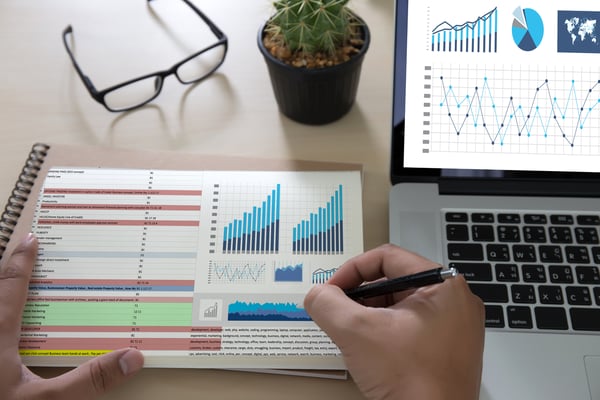
Business experts are fond of observing that, “what gets measured gets managed.” But how do you know if you are measuring things correctly? Or whether you can trust the data you get from your tests?
In many cases, improvement experts will use a tool called measurement system analysis (MSA) to test the “system” (i.e., the process, tools, and people) they use to gather data and quantify variation. MSA is a set of procedures that helps to assess a measurement system’s ability to provide good data. In short, it tells you how good your measurement system is—and how much you can trust the information it provides.
MSA Measurements
MSA is designed to test two parameters: accuracy and precision.
Accuracy determines how close a measurement is to a target value; for example, if the output of a process should weigh 10 pounds, how close to 10 pounds are the actual outputs of that process?
Accuracy can be determined by assessing the bias, stability, and linearity of values:
- Bias will tell you how close a measurement is to the “real” value. If you have an object that you know weighs 10 pounds, but repeated measurements on a scale say that the object weighs 12 lbs, the bias would be two pounds.
- Stability will explain how consistently a system can measure the same sample over time and get the same results. If you weigh the 10-pound object five times, do you consistently get the same reading each time?
- Linearity shows how consistent the bias is over an entire measurement range. In other words, if the bias for a 10-pound object is two pounds, is the bias still two pounds for a 50-pound object? Or does the bias creep up with higher weights (i.e., does the bias extend to five pounds for a 25-pound object, seven pounds for a 35-pound item, nine pounds for a 50-pound weight, etc.)?
Precision shows how consistently a process is producing outputs; to continue the example above, if a process is generating outputs, is it consistently producing outputs of the same weight? Or are the outputs of wildly different weights (e.g., some outputs are four pounds, some are seven pounds, some are 10.5 pounds, and others are 13 pounds)?
Like accuracy, precision can be assessed in categories: specifically, repeatability and reproducibility:
- Repeatability tests the measurement device. If you have the same person measure the same process with the same measuring device, and you see variation in the measurements, the measuring device is likely at fault.
- Reproducibility tests the measurement process or measurement operator. If you have different people measure the same process with the same measuring device, and you see variation in the measurements, the person may be at fault. (The variation may, however, be caused by the process if directions are unclear.)
Trusting the Data
An effective MSA allows practitioners to assess their measurement systems to ensure that they are free from error and that the resulting data is reliable. This , in turn, allows them to expend their energies refining processes and products with the assurance that they are not wasting time, money, and effort producing outcomes that cannot be effectively measured. In other words, it guarantees that “what gets measured correctly gets managed correctly.”






